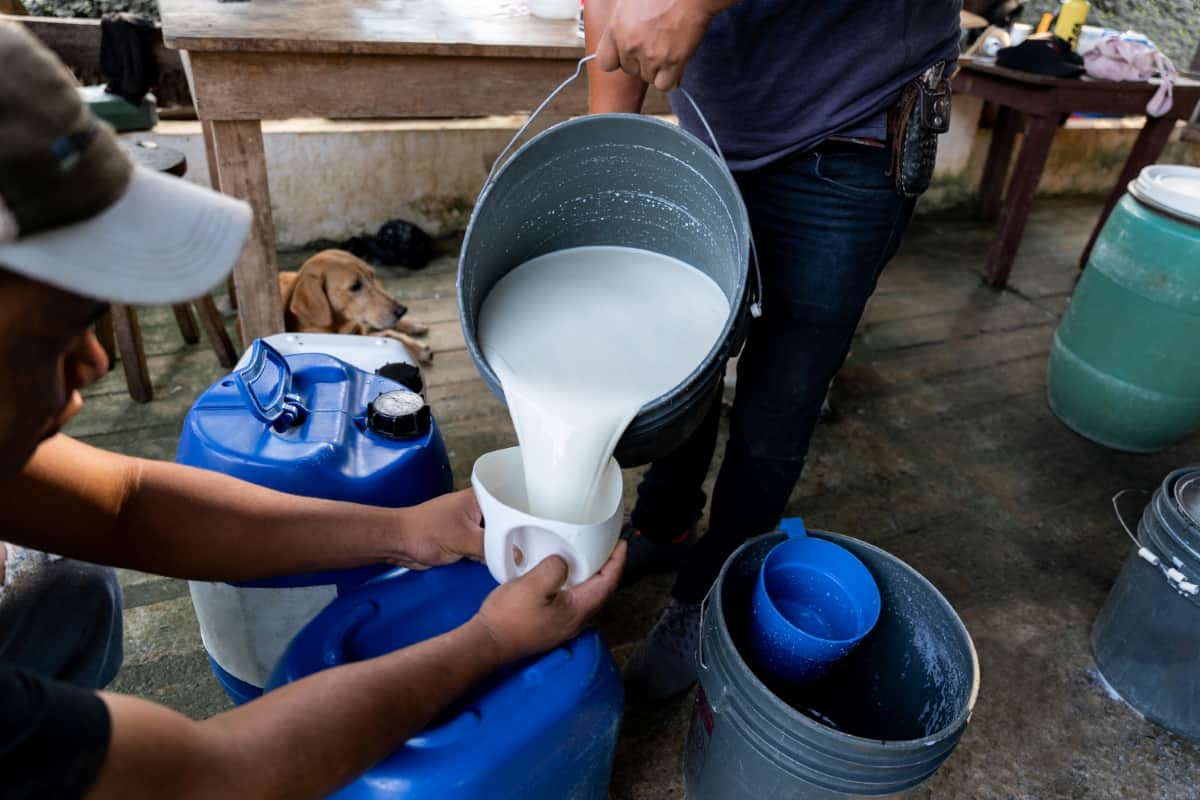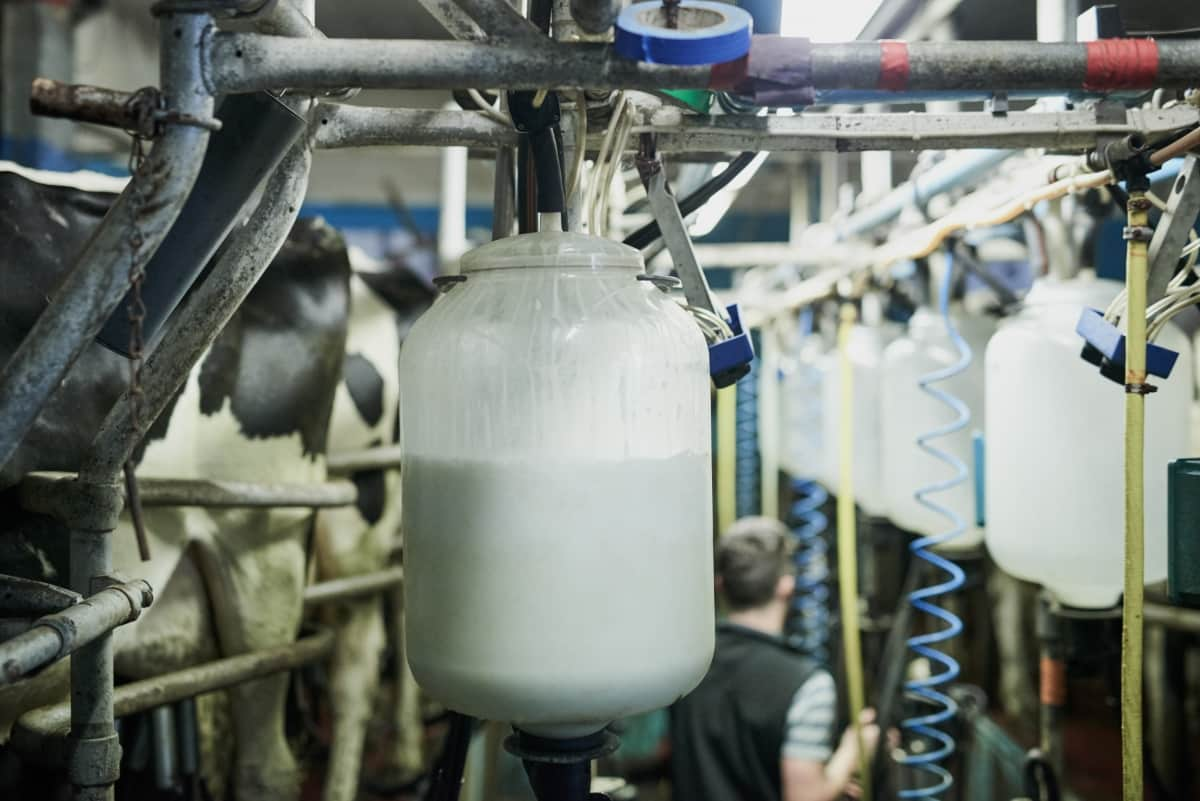Learn how to sell your milk directly to Amul or Mother Dairy with our beginner’s guide. Understand milk procurement policies, quality standards, and legal compliance. Discover the dairy farm certification process and infrastructure investment needed. Explore milk collection center logistics and supply chain management.

Learn about food safety standards, pricing contracts, and volume requirements. Find out about training programs for dairy farming and sustainable practices. Uncover innovative production techniques and how to manage relationships with milk suppliers.
How to Sell Milk Directly to Amul or Mother Dairy
Milk Procurement Policies
Amul, owned Gujarat Cooperative Milk Marketing Federation Ltd, is India’s largest food product marketing organization. It procures approximately 25.9 million liters of milk per day from 18,600 village milk cooperative societies, covering 33 districts and involving 3.64 million milk producer members.
Amul aims to provide remunerative returns to farmers while ensuring quality products for consumers. They operate through a vast network of dealers and retailers, offering a wide range of dairy products such as milk, ghee, butter, cheese, ice cream, and traditional Indian sweets.
Dairy Supplier Registration (Mother Dairy)
Mother Dairy, commissioned in 1974 as wholly owned by the National Dairy Development Board, plays a crucial role in India’s dairy sector. They procure milk from farmers and ensure its quality before processing and packaging. Mother Dairy has implemented various schemes to support dairy farmers, including cattle insurance subsidies and enhanced supply of cattle feed and fodder.
Quality Standards for Milk Suppliers
Both Amul and Mother Dairy maintain strict quality standards for milk suppliers. Freshness, hygiene, and safety are paramount. Amul procures milk within a radius of 15-20 km from the dairy plant and processes it within 4 hours of milking to ensure freshness and high quality.
Dairy Farm Certification Process
While specific certification processes may vary, both Amul and Mother Dairy emphasize adherence to quality standards. Certification ensures that dairy farms meet hygiene, safety, and animal welfare criteria.
Dairy Infrastructure Investment
Investing in proper infrastructure is essential for successful dairy farming. This includes facilities for milking, storage, cooling, transportation, and processing. Amul has pioneered the Direct to Retail (D2R) dairy model. In this model, middlemen are effectively eliminated. Companies or brands procure milk directly from farmers, pay them commensurately, process the milk, and sell it to end consumers through company-owned milk parlor chains and retail stores.
In case you missed it: How to Use Spoiled Milk for Plants: Benefits and Application Procedure

This approach ensures transparency and fair compensation for farmers. Amul and Mother Dairy have pricing contracts with dairy farmers. These contracts outline the terms of payment, quality standards, and other relevant details. Farmers receive fair prices for their milk based on factors such as fat content and quality.
Dairy Farming Training Programs
Both Amul and Mother Dairy offer training programs for dairy farmers. These programs cover various aspects of dairy farming, including animal husbandry, hygiene practices, feed management, and sustainable farming techniques. Participating farmers gain valuable knowledge to improve their productivity.
Sustainable Dairy Farming Practices
Sustainability is a key focus for both Amul and Mother Dairy. They encourage farmers to adopt sustainable practices such as efficient water use, waste management, and eco-friendly feed options. Sustainable farming ensures long-term viability for both farmers and the environment.
Innovative Dairy Production Techniques
Amul invests in research and development to discover innovative dairy production techniques. These may include advancements in milking technology, feed formulation, or processing methods. By adopting these innovations, dairy farmers can enhance productivity and product quality.
Understanding Procurement Policies
The first step in selling milk directly to Amul or Mother Dairy is to understand their procurement policies. These policies, terms, and conditions for milk procurement, including quality standards, volume requirements, and pricing structure. It’s crucial to familiarize yourself with these policies to ensure your dairy farm meets the necessary criteria.
Initial Contact
Once you have a clear understanding of the procurement policies, the next step is to make initial contact with Amul or Mother Dairy. This usually involves filling out a supplier registration form and providing details about your dairy farm, including its location, size, production capacity, and infrastructure.
Quality Standards and Certification
Amul and Mother Dairy have strict quality standards for their milk suppliers. These standards cover various aspects of milk production, from the health and welfare of the cows to the hygiene and sanitation of the milking process. To sell milk to these companies, your dairy farm will need to undergo a certification process, which includes an assessment of your infrastructure and a facility inspection.
In case you missed it: A Comprehensive Guide to Commercial Goat Milk Production

Infrastructure Assessment and Investment
Investing in your dairy farm’s infrastructure is crucial for meeting the quality standards set by Amul and Mother Dairy. This may involve upgrading your milking equipment, improving your cow sheds, or installing a cooling system to keep the milk fresh.
Supply Chain Logistics
Supply chain logistics key to the milk procurement process. This involves setting up collection centers, arranging transportation, and ensuring the milk is cooled and stored properly during transit.
Legal and Regulatory Compliance
Selling milk directly to Amul or Mother Dairy requires compliance with legal and regulatory requirements. This includes obtaining the necessary registrations and licenses, adhering to food safety standards, and meeting volume and consistency requirements.
Pricing and Contracts
Understanding the pricing structure and negotiating contracts are crucial aspects of the milk procurement process. These contracts outline the terms and conditions of the milk supply, including the price, volume, and delivery schedule.
Training and Development
Continuous improvement and skill enhancement are key to maintaining a successful relationship with Amul or Mother Dairy. This may involve participating in training programs, adopting sustainable farming practices, and implementing innovative production techniques.
In case you missed it: Goat Milk Processing and Products: From Cheese to Soap

Conclusion
Selling milk directly to Amul or Mother Dairy requires understanding procurement policies, quality standards, and legal compliance. With proper certification, infrastructure investment, and adherence to food safety regulations, beginners can establish successful relationships with these dairy giants and contribute to the supply chain with confidence and efficiency.
- Feed Your Flock for Less: Top 10 Tips to Save on Chicken Feed
- Ultimate Guide to Ossabaw Island Hog: Breeding, Raising, Diet, and Care
- Hatching Answers: The Top 10 Reasons Your Chickens Aren’t Laying Eggs
- Eggs and Economics: Breaking Down the Cost of Raising Backyard Chickens
- Defend Your Greens: Proven Methods to Keep Iguanas Out of Your Garden
- Ultimate Guide to Cinnamon Queen Chicken: A Comprehensive Guide for Beginners
- Ultimate Guide to California Tan Chicken: Breeding, Raising, Diet, Egg-Production and Care
- Ultimate Guide to Marsh Daisy Chicken: Breeding, Raising, Diet, and Care
- 10 Types of Chicken Farming Businesses You Can Start for Profits